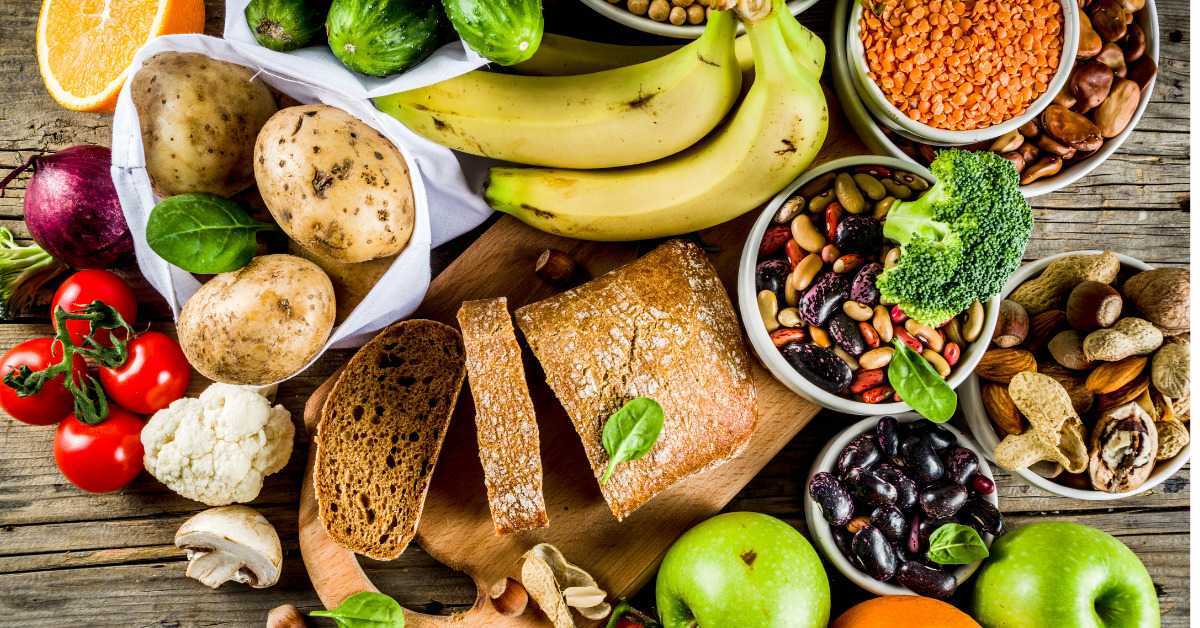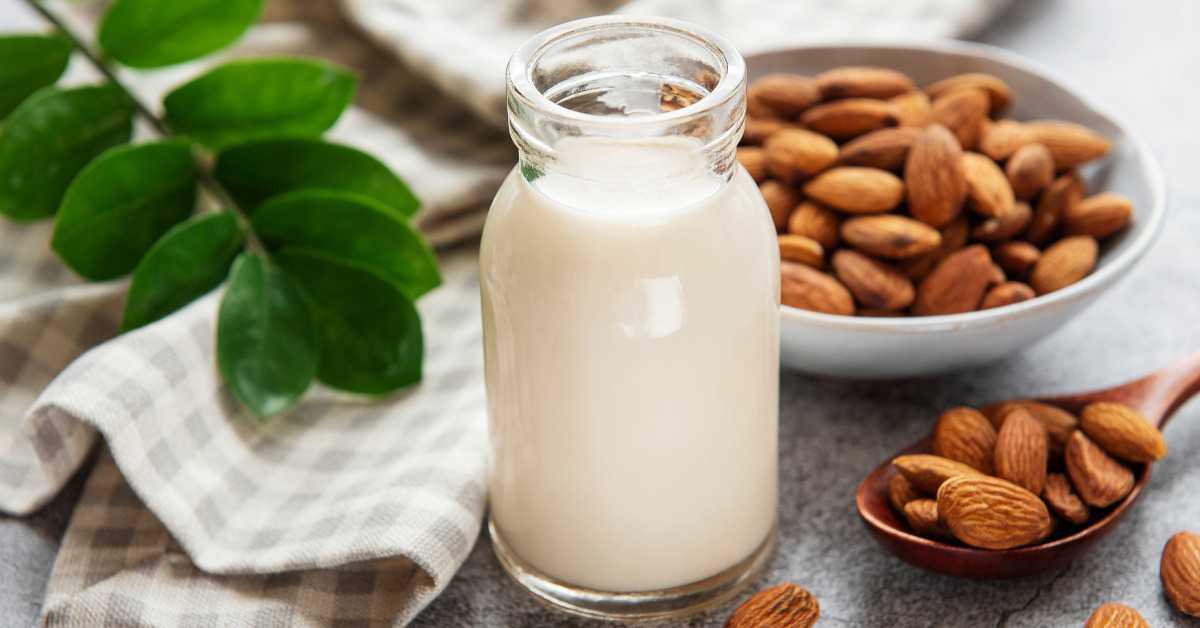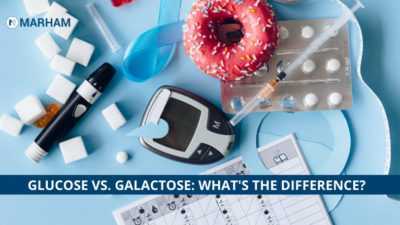If you’re like most people, you probably don’t give a lot of thought to the difference between glucose and galactose. But as it turns out, these two molecules are quite different, and understanding the difference is important for anyone interested in health and nutrition.
In this blog post, we will discuss the difference between glucose and galactose, and we’ll also explore some of the potential benefits of each. So if you want to learn more about these two molecules, read on!
What is Glucose?
Glucose is a simple sugar found in many foods. It’s also the main form of sugar that your body uses for energy. Your blood carries glucose to all of your body’s cells to use for energy.
Your body gets glucose from the food you eat and also from your liver, which makes it from other nutrients in your diet. After you eat, your blood glucose level rises and triggers the pancreas to release insulin. Insulin is a hormone that helps glucose get into your cells to give them energy.
If you have diabetes, it means that your body can’t make or use insulin properly. This can cause your blood sugar levels to become too high. Over time, high blood sugar levels can damage your eyes, kidneys, nerves, and heart.
“If you have diabetes, self-testing your blood sugar (blood glucose) can be an important tool in managing your diabetes and preventing complications.” –Mayo Clinic
Foods that have glucose:


- Fruit: Apples, bananas, grapes, oranges, strawberries
- Vegetables: carrots, corn, potatoes
- Dairy: Milk, yogurt
- Grains: Bread, cereal, pasta
- Beverages: Coffee, energy drinks, fruit juice, soda
- Other: Honey, table sugar
If you have diabetes or are at risk for diabetes, it’s important to limit the amount of glucose in your diet. You can do this by eating more fruits and vegetables and less processed foods.
What is Galactose?
Galactose is a simple sugar that is found in milk and other dairy products. It is also found in some plant foods, such as legumes and certain nuts and seeds. In the body, galactose is broken down into glucose. Glucose is then used for energy.
Galactose is also a component of lactose, which is the sugar found in milk. Lactose is made up of one molecule of glucose and one molecule of galactose. When lactose is consumed, it is broken down into glucose and galactose in the body.
It is classified as a monosaccharide or simple sugar. Monosaccharides are the simplest type of carbohydrate and consist of a single sugar molecule. Galactose is a hexose, meaning it has six carbon atoms.
Foods that have Galactose:


- Dairy: Galactose is found in dairy products, such as milk and yogurt.
- Legumes and Nuts: It is also found in some plant foods, such as legumes, certain nuts, and seeds. For example, galactose is found in peanuts, soybeans, lentils, chickpeas, and almonds.
- Vegetables: Galactose is also found in small amounts in other plant foods, such as broccoli and cabbage.
So, What’s the Difference between Glucose and Galactose?
Although glucose and galactose are both monosaccharides, they have several key differences. Some key differences have been listed below:
- Abundance: Glucose is much more abundant than galactose.
- Source of Energy: Glucose is also a major source of energy for living cells, while galactose is not.
- Transportation: The structure of glucose allows it to be easily transported through the body, but the structure of galactose makes it more difficult to transport.
- Metabolism: Glucose is metabolized differently than galactose, meaning that they have different effects on the body.
Effects of Glucose and Galactose on the Body:
Here are that glucose and galactose can have on the body:
- Galactosemia:
While glucose can be used by the body for energy, galactose must be converted into glucose before it can be used. This process is known as galactosemia, and it can be dangerous if not treated properly.
Galactosemia is a rare condition that affects the way the body metabolizes galactose. If left untreated, it can lead to serious health problems, including liver damage, kidney failure, and death.
- Spikes in Blood Sugar:
Eating foods high in sugar like chocolates, candies, or sweets can cause sudden spikes in blood sugar levels as glucose is readily absorbed by the body.
However, relatively galactose is slowly metabolized by the body, so it doesn’t cause the same spikes in blood sugar that glucose does.
This might mean that foods high in galactose are generally healthier for people with diabetes or other conditions that require them to maintain stable blood sugar levels.
The Bottom Line
So now that you know the difference between glucose and galactose, you can see why it’s important to know which one you’re eating.
Glucose and galactose are two very different sugar molecules. Although they may seem similar at first glance, their differences set them apart in many important ways.
Understanding these differences is essential for understanding how our bodies use and process sugar. If you want to maintain healthy blood sugar levels, it’s important to choose foods that will not cause a sudden spike in your blood sugar levels.
If you have any further questions about your diet or diabetes, you should consult a dietitian. Through the Marham app, you can consult online with the Best Dietitians in Pakistan from the comfort of your home. So, book your appointment today!
Can’t Find the App?
| Android | IOS |
|---|---|
  |
  |
FAQs
Do glucose and galactose have different properties?
Yes, glucose and galactose have different properties. Galactose is not as sweet as glucose and glucose is more soluble in water than galactose. They both are also metabolized differently by the body.
What is the major difference between glucose and fructose?
The major difference between glucose and fructose is that they have different structures. Glucose is a six-carbon sugar while fructose is a five-carbon sugar. This difference in structure means that the two sugars have different properties.
What test would be used to measure galactose in blood?
A galactosemia test measures the level of galactose in your blood. Galactose is a sugar that’s found in milk and other dairy products. If you have galactosemia, your body can’t break down galactose properly.

